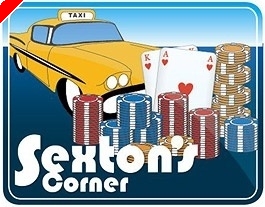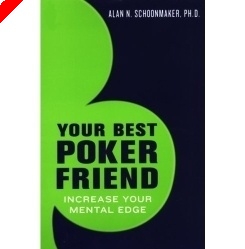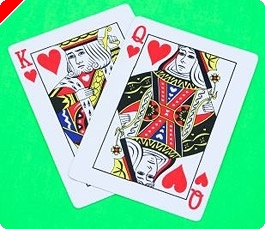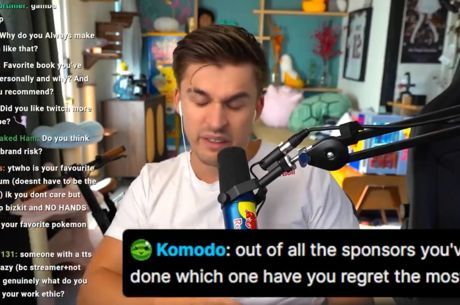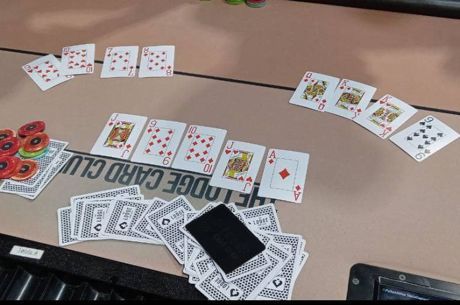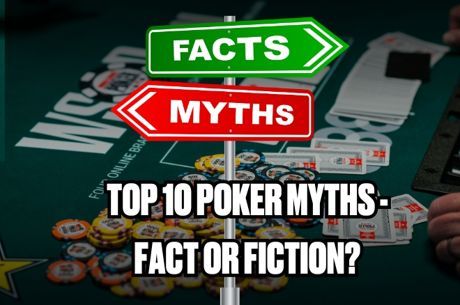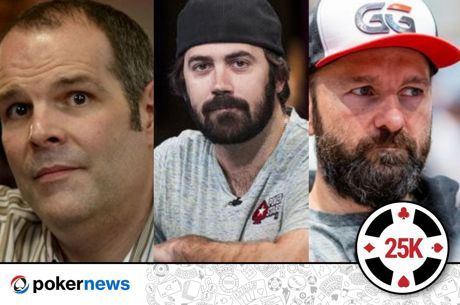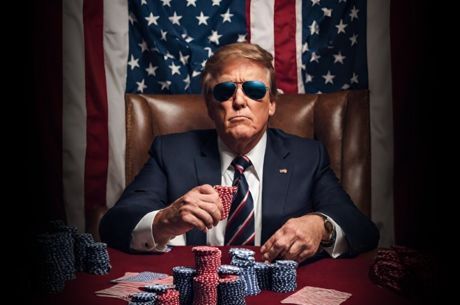The Other Side of the Felt, Vol. 1: Road to the WSOP
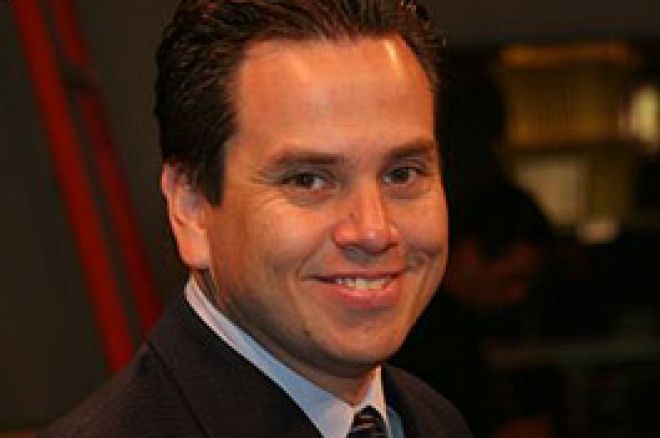
I have always said that I have the best job in the world. Being a tournament director has given me the opportunity to see the world, meet my beautiful wife, Maryann (which resulted in the birth of my son in 2006), and meet thousands of interesting people along the way.
In 1997, I was dealing at Bay 101 Casino and I developed carpal tunnel syndrome in my left hand. I never could have known then that was the best break in my career. I loved dealing and was happy doing it, so I might not have ever quit, but because of the CTS I had to go on the floor to pay the bills.
I eventually filled in for the vacationing tournament director and loved it right away. I had a real passion for working with the players and loved the excitement of tournament poker. The TD spot was not available at Bay 101, however, so when Lucky Chances Casino opened in 1998 I made the tough decision to leave my hometown of San Jose and head north to the city of the dead, Colma, California.
During my tenure as TD at Lucky Chances, I traveled the Bay Area tournament circuit and played some events. The problem that I saw was that rules were not only different from tournament to tournament, but also from shift to shift and even from employee to employee. I made the decision to see what I could do to improve the situation for both players and employees around the country, so in 2001 I boarded a Southwest flight for Las Vegas and the World Series of Poker. I set up a meeting with WSOP Tournament Director Bob Thompson and his son Robert.
When I raised the issue of standardization, I was met with a chuckle. As Bob put it, "It has been tried before and no one wants to do the work." As luck would have it my friend Linda Johnson, who I had met a couple years before, was able to take some time and sit down and discuss my idea. Linda also invited her accomplished business partner Jan Fisher, and talented TD Dave Lamb. They not only liked the idea but joined me and even offered to provide a venue to host our first meeting.
This first meeting was held at the Orleans Hotel in conjunction with the World Industry Poker Conference and was attended by 25 tournament directors from casinos around the country including, Cheri Dokken (Commerce), Denny Williams (Bicycle), Jack McClelland (Bellagio), Mike Ward (Foxwoods), the aforementioned Bob Thompson, plus others. At the end of the meeting we had 14 rules, and the Tournament Directors Association was formed. The TDA now has more than 800 members worldwide.
Early in 2002 I got a phone call from 1983 WSOP Champion Tom McEvoy that would change my life. Tom was hired by Becky Binion-Behnen (the daughter of WSOP founder Benny Binion) as an advisor for the WSOP. His inquiry was if I would be interested in working as TD for the 2002 WSOP with Steve Morrow. I was of course taken aback, but told him I would be back to him in short order. I asked the owner of Lucky Chances for his approval and then asked a few of my closest friends in the industry. There was no problem at Lucky Chances, but to my surprise most of my friends advised me not to take the position. At issue was the cash-strapped nature of Binion's (and the WSOP) at that time, with some workers from the previous year reportedly having been unpaid.
Can you imagine if the WSOP had folded? It almost did in 2001. Luckily for both me and poker it did not, and I still say today that I am glad that I did not listen to those who told me not to take the job. In fact, it would have been worth it for me to do it for free for the experience and for building my resume.
My first challenge was going to be to get the respect of the players, as I knew a few pros, but not many. I did, however, feel that I was up to the task, so I went back to the Bay 101 during their annual Shooting Star event to introduce myself. I went to every pro I recognized and shook hands, introduced myself, and discussed my plans for the WSOP. I specifically sought out the top pros and those that were known to be problematic. Most of them looked at me like 'Who is this guy?' but listened to what I had to say. Men the Master (Nguyen), John Bonetti, and Sam Grizzle were among those I had heard a lot about, regarding abusive behavior toward other players and dealers, so I approached them as if there was a new sheriff in town as I spread the word that abusive behavior would not be allowed.
Of the three, only Grizzle did not take offense and kind of laughed it off. Men said, "I am Men the Master, I am Men the Master," and Bonetti looked for his best friend, Phil Hellmuth, to talk to me and said, "Do you believe this $@!*& guy." I think Phil, down deep, respected me for being strong, but wouldn't admit it at the time and he has since become one of my strongest supporters.
At that point, the WSOP was only a month away and there was much to do. I focused on the rules, the structures, and hiring. Coming off of a year of setting up rules, the first goal was to get the new TDA rules in place. There were a few rules that I specifically wanted to implement, including the new 'raise' rule.
Up until 2002 in the WSOP you were allowed to go back and forth to your stack as many times as you wanted as long as you kept your hand in the middle of the table. This created an excellent opportunity for legal string bets and angle shooting. Both Tom McEvoy and Co-Tournament Director Steve Morrow said this would never work as players were used to the old way. I changed it anyway and made announcements about the change. Only a few players challenged me during the Series that year, among them Johnny Chan, but understood the reasoning once explained.
TDA Rule # 32 states: Methods of Raising: In no-limit or pot-limit a raise must be made by (1) placing the full amount in the pot in one motion; or (2) verbally declaring the full amount prior to the initial placement of chips into the pot; or (3) verbally declaring "raise" prior to the placement of the amount to call into the pot and then completing the action with one additional motion.
Another rule that was foreign to almost all players was TDA rule #9:
Face Up: All cards will be turned face up once a player is all-in and all betting action is complete.
I like to call this the 'Erik Seidel rule' because, while most were not used to it, Erik is famous for the arguments he had against this one. His point, a valid one, is that his game is about information and that he should not have to give up that information if he does not have to. As it turns out this one rule may have had a more positive affect on televised poker than any other rule. Can you imagine if there was a heads-up all-in and we did not ever know what two cards a player held? Erik had, in the past, tried to beat the hole card cam as well, so much so that they installed a hidden hole-card camera in Atlantic City so he could not avoid showing them. He has since complied on multiple shows as he understands the benefit it has for the game... or maybe just because he cannot beat the system.
Another first was the WSOP going non-smoking. Many people do not realize it was the efforts of a few individuals, most specifically Casey Kastle, who fought for years to make tournaments non-smoking. My opening statements at the 2002 WSOP included the following: "We are happy to announce that the tournament area is now non-smoking," which brought a round of applause, and then I followed that with, "THE ABUSE STOPS NOW! Players will no longer be allowed to abuse other players or dealers." The second announcement surprisingly had a larger response than the no smoking. At that point I remember having the feeling of great accomplishment in my career. Who knew that the next years of my career would bring thousands of interesting situations and great times? I hope to share some of those with you over the next few months (and hopefully, years) and I appreciate PokerNews for giving me the opportunity.
See you at the final table!
Matt
Matt Savage is one of the world's most recognized poker tournament directors, and has been involved with over 350 televised events including the World Series of Poker, World Poker Tour, and many others. Matt is a founder of the Tournament Directors Association, the first inductee into the Poker Managers Hall of Fame, and actor in the movie Lucky You. If you have questions about any rulings please send them to [email protected] or check out Matt's website at SavageTournaments.com.

